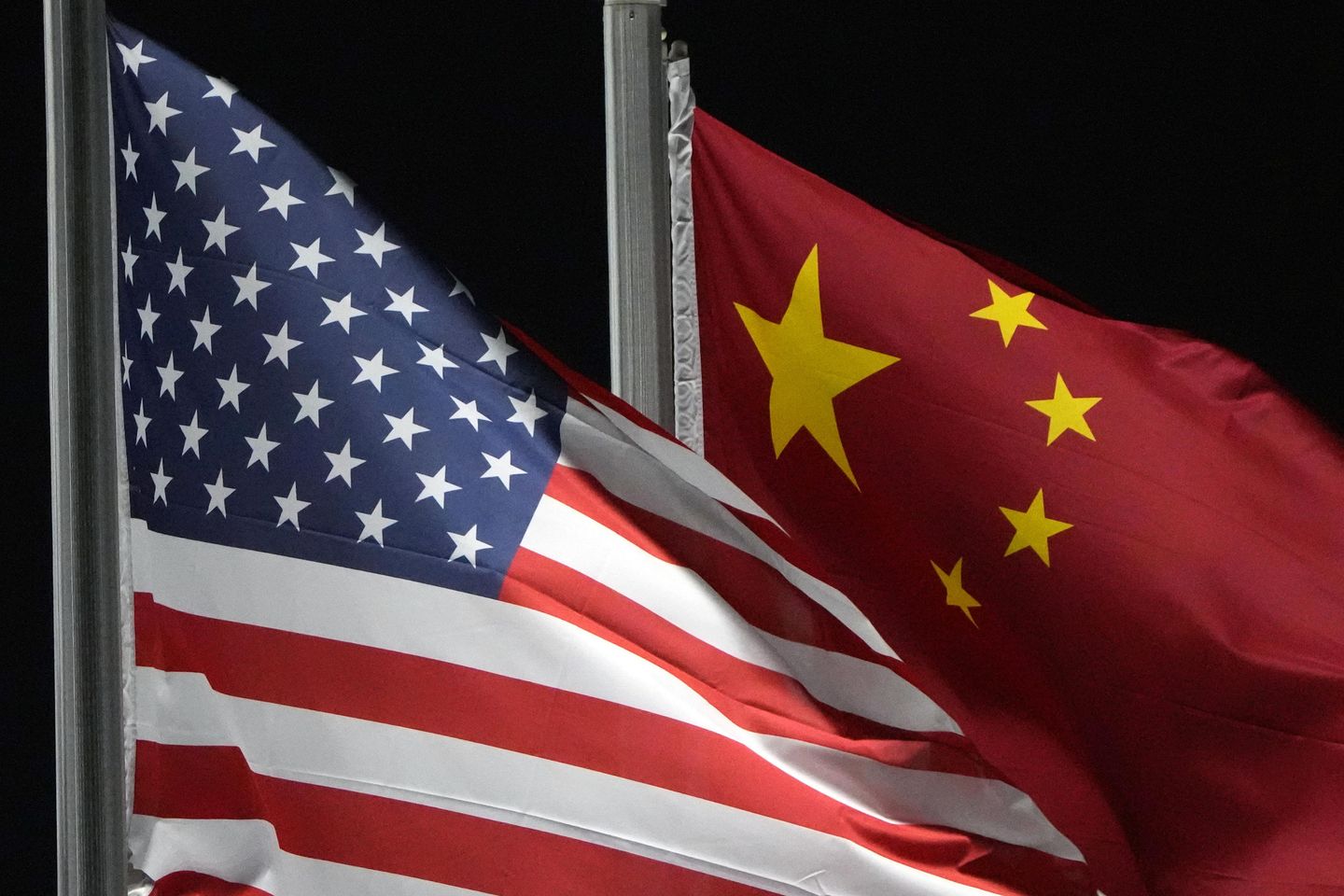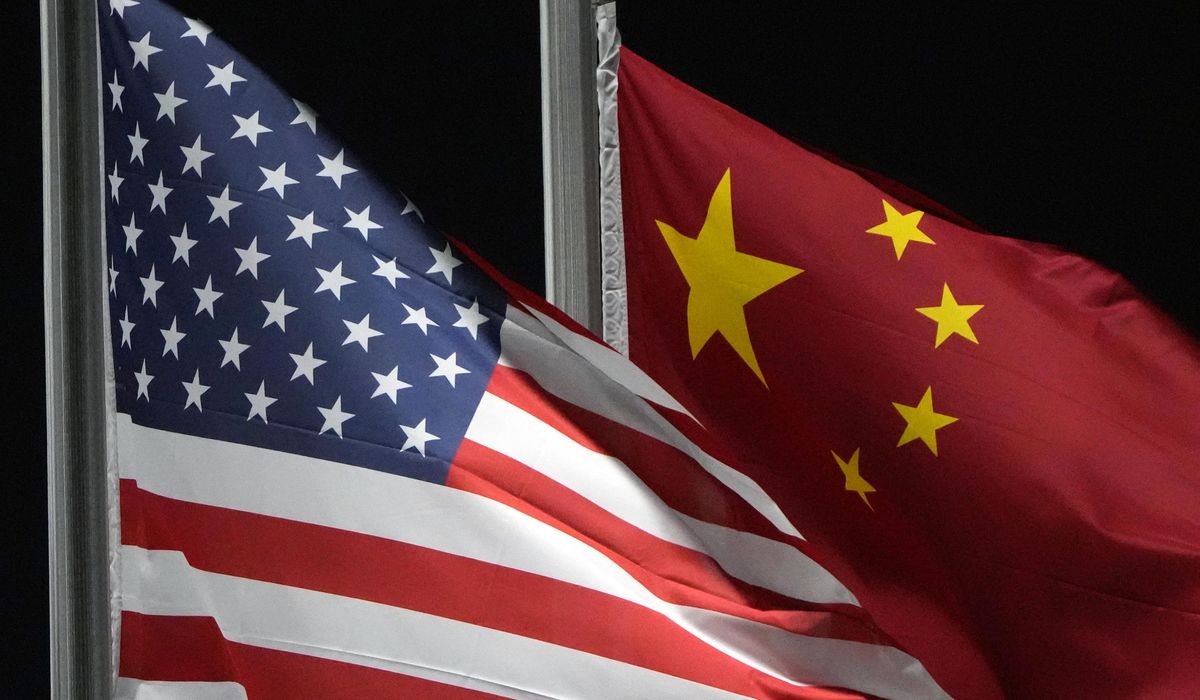

China conducted a sophisticated disinformation campaign against a company building a rare earth minerals facility in Texas for the Pentagon, according to the Pentagon and a cybersecurity firm.
The cybersecurity company, Mandiant, disclosed the campaign on Tuesday. It said Chinese actors used social media in a bid to discredit Lynas Rare Earths Ltd., an Australian company, and other rare earth mining firms to undermine the critical supply chain for the elements. The Pentagon has signed an agreement with Lynas, the world’s largest rare earth mining and processing company, to build a Texas plant.
China has aggressively moved to dominate the global market for “rare earth” minerals, which are indispensable to many cutting-edge technological products, including smartphones, flat-screen TVs, medical equipment and water treatment systems. The U.S. and its allies have pressed in recent years to develop alternative sources of supply and production.
Mandiant investigators identified what they said were Chinese agents posing online as concerned local Texans who opposed Lynas’ planned construction of a rare earth processing plant there.
Fake Twitter accounts claimed the Texas plant would cause irreversible environmental damage, Mandiant stated in a blog post report. The fake accounts also stated that the plant would expose residents to radioactive contamination and health risks, including cancer, genetic mutations and deformities in newborns.
The campaign was also conducted on Facebook and used more sophisticated pitches seen in past Chinese online influence operations, Mandiant said.
“We observed accounts post primarily in English, with an additional lesser amount of content in Chinese,” the report said. “Additionally, we observed extremely limited messaging in Malay, and Dragonbridge accounts promoted photos of demonstrations against Lynas that took place in Malaysia sometime between 2012 and 2019, due to controversy surrounding the disposal of radioactive waste produced by its rare earths processing facility in the city of Kuantan.”
“Dragonbridge” is the code name Mandiant gave to those conducting the Chinese disinformation operation.
Chinese Embassy spokesman Liu Pengyu said he had not seen the Mandiant report but suggested it was based on “forces in the world” that seek to fabricate rumors to slander and discredit China.
“China is one of the biggest victims of disinformation,” he said in an email. “China always opposes the creation and dissemination of disinformation. There are some people and forces in the world who are keen to fabricate rumors, slander and discredit China.”
The campaign involved a network of thousands of inauthentic accounts on social media platforms, websites and forums that “promoted various narratives in support of the political interests of the People’s Republic of China (PRC),” Mandiant stated in a report.
The Pentagon confirmed the disinformation operation in a statement Tuesday. It praised the work of Reston, Virginia-based Mandiant in helping to expose the disinformation attempt.
Lynas Rare Earths is working to set up production in the United States, and the Defense Department “has engaged the relevant interagency stakeholders and partner nations to assist in reviewing the matter,” the statement said.
The disinformation operation made false claims about the company’s environmental record and tried to spark protests against the facility, according to Mandiant. The Chinese used similar tactics in opposing a Canadian rare earth mining company called Appia Rare Earths & Uranium Corp. and the American rare earths manufacturing company USA Rare Earth.
The targeting included “negative messaging in response to potential or planned rare earths production activities involving those companies,” the report said.
The Chinese also targeted the Biden administration’s March decision to invoke the Defense Production Act to speed up domestic production of critical minerals and end reliance on Chinese sources for the minerals.
Vulnerabilities
The disinformation operation was disclosed after the publication of a Pentagon review of critical minerals and materials that revealed security vulnerabilities with foreign sources of critical minerals used in military and civilian goods, including the U.S. military’s reliance on rare earths in F-35 advanced jets and Virginia-class attack submarines. A total of 920 pounds of rare earth minerals are used in each F-35 fighter jet produced, and Virginia-class submarines use 10 times that amount, according to a report in the online journal Foreign Policy.
The Pentagon “remains committed to working with industry, [other U.S. agencies] and partner nations to promote resilient, environmentally sustainable, and transparent supply chains for critical minerals and materials, both domestically and around the globe,” the statement said. Defense Department officials recently announced plans for an advanced rare earths processing plant in North America.
In its threat intelligence report released online Tuesday, Mandiant said the disinformation operation was part of a larger Chinese government push to undermine U.S. and allied efforts to challenge Beijing’s dominance in the market for rare earth minerals.
Chinese President Xi Jinping vowed during a May 2019 visit to a rare earths mine in Jiangxi that he would not allow other nations to undermine China‘s lead in the critical minerals race.
“We advise the U.S. side not to underestimate the Chinese side’s ability to safeguard its development rights and interests. Don’t say we didn’t warn you,” said the People’s Daily, an official outlet of the Chinese Communist Party Central Committee.
Chinese Communist Party leaders have long seen dominance of the rare earths mineral supply as a major strategic goal. Deng Xiaoping noted in a 1992 speech, “The Middle East has its oil. China has rare earths.”
“China‘s rare earth deposits account for 80% of identified global reserves. You can compare the status of these reserves to that of oil in the Middle East. It is of extremely important strategic significance. We must be sure to handle the rare earth issue properly and make the fullest use of our country’s advantage in rare earth resources,” Deng said at the time.
The Mandiant report stated that the campaign did not appear to be effective and sparked limited engagement by Texas residents against the project. The report said it will not be Beijing’s last attempt.
“The campaign’s microtargeting of specific audiences suggests the possibility of using similar means to manipulate public discourse surrounding other U.S. political issues to the PRC’s advantage,” the report said.
